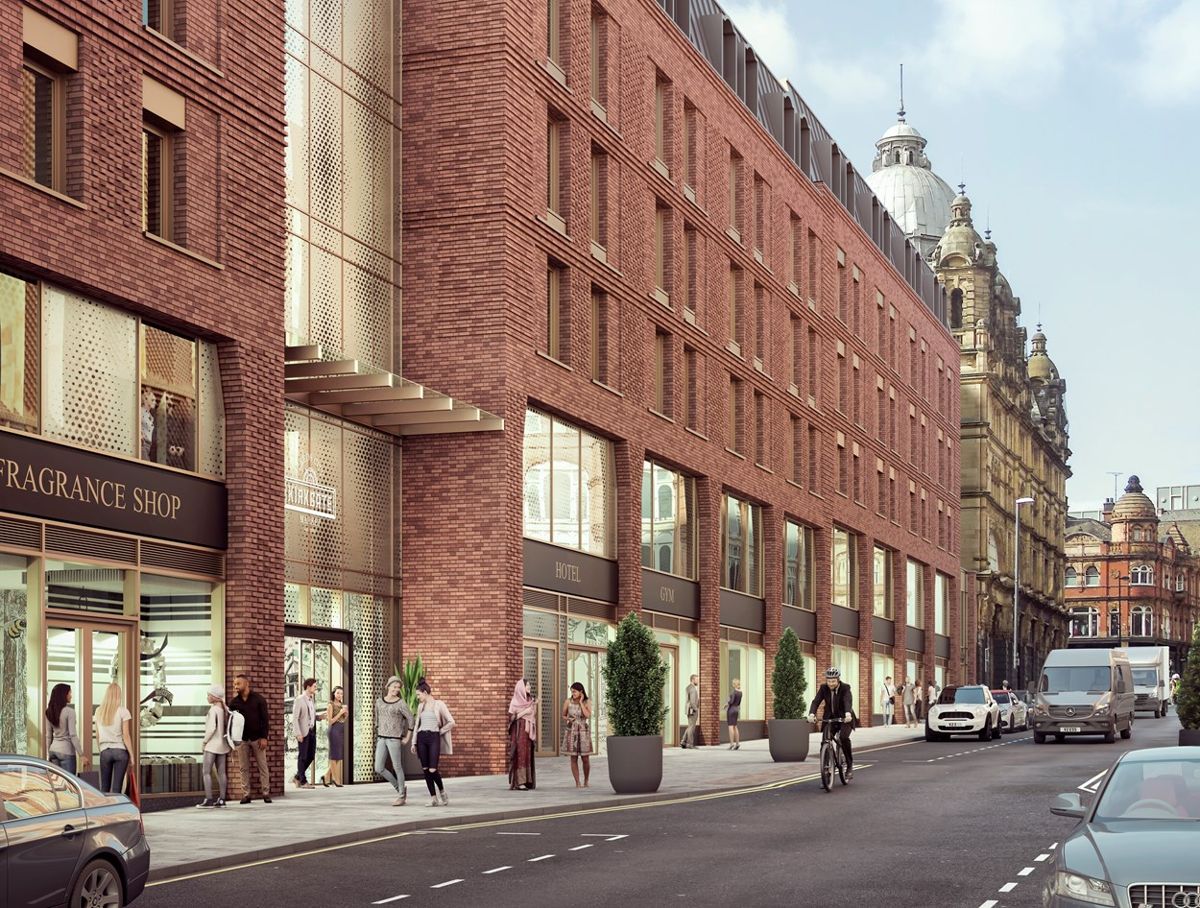The Leeds Kirkgate Market hotel scheme, a city centre regeneration project, has received approval for the construction of a new hotel and gym facility near the historic marketplace. The development, which has secured a pre-let lease with Premier Inn, is expected to create jobs and preserve the market’s cultural heritage while enhancing the area’s vibrancy and economic vitality.
What is the Leeds Kirkgate Market hotel scheme?
The Leeds Kirkgate Market hotel scheme is a city centre regeneration project that involves the construction of a new hotel and gym facility next to the historic marketplace. Set to enhance the area’s vibrancy and economic vitality, the development has secured a pre-let lease with Premier Inn and is expected to create around 50 new jobs, augmenting local employment and preserving the market’s cultural heritage.
City Centre Regeneration
Leeds’ city centre stands on the cusp of a significant evolution, with Leeds Kirkgate Market at the heart of this transformation. After a detailed review and planning, the city council’s ambitious project for a new hotel and gym facility has received unanimous approval. The genesis of this plan began with a planning application submitted in August, envisioning a modern addition to the historic marketplace. Set to be located along George Street, this development promises to blend seamlessly with the Grade I listed market, enhancing its traditional allure with a contemporary twist.
The project aligns with the city’s regeneration trajectory, which has seen areas surrounding the market flourish with new establishments like the Victoria Gate retail complex and the Leeds Playhouse. A testimony to the city’s commitment to progress, the hotel is poised to add a dynamic element to the locality, driving footfall and fostering economic vitality. With a pre-let lease secured with Premier Inn, the harmony between historic preservation and modern amenity is evident, signaling a new era for the market and its surrounding district.
Expected to commence next year, the construction phase of the project aims not only to uplift the market’s aesthetic but to provide the community with access to state-of-the-art health and fitness offerings. This initiative reflects the council’s dedication to promoting a vibrant and health-conscious urban environment. The council-run gym, nestled within the development, extends an invitation for residents and city workers to engage in a holistic lifestyle, right in the city’s bustling core.
Economic Impacts and Community Benefits
In the words of Councillor Jonathan Pryor, “The George Street scheme marks a pivotal step in the revitalisation of the Leeds Kirkgate Market area and beyond.” This sentiment captures the council’s vision of a city that is not only pulsating with life but also an ecosystem that nurtures its historic gems like the beloved market. The proposed hotel is more than a structure; it’s a bridge connecting various city quarters, from Vicar Lane to Quarry Hill, enhancing the coherence of the city’s landscape.
Upon completion, the six-storey development will not only house Premier Inn guests but will also be a catalyst for local employment. With the hotel offering 143 rooms, a bar, and a restaurant, it is expected to generate approximately 50 new jobs, with an additional 80 roles supported throughout the building phase. The ground floor will be a vibrant mix of commercial spaces, ensuring the area’s pulse remains strong day and night. This economic boost is a testament to the city’s strategic planning and investment in its future.
Paul Smith of Whitbread acknowledges the strategic importance of the location, expressing pride in Premier Inn’s role in this undertaking. “We look forward to contributing to the area’s vibrancy and catering to our customers’ needs,” he notes. The collaboration between Whitbread and the city council is a fine example of public-private partnerships driving urban enhancement. This synergy is instrumental in materializing projects that resonate with both the city’s heritage and the contemporary needs of its visitors and residents.
Sustained Support and Future Prospects
Leeds City Council’s unwavering support for Kirkgate Market is evident in its recent advancements. A comprehensive programme is underway to repair and rejuvenate the 1875 blockshops, the oldest existing structures within the market. This refurbishment is part of a broader scheme that underscores the market’s significance in Leeds’ social and economic fabric. In response to the pandemic’s challenges, the council provided over £1.4 million in rent concessions to support the traders, ensuring the market’s vitality.
The creation of the Market Kitchen, a street food hall that emerged from a £14 million refurbishment in 2016, showcases the council’s innovative approach to space reutilization. This venue has since become a popular attraction, blending culinary delights with cultural events. Looking ahead, the council is exploring the potential of a ‘container-style’ food village, which would further diversify the market’s offerings and draw in visitors, benefitting the trader community.
Such initiatives reflect the council’s broader strategy of fostering a thriving market environment, one that not only serves as a shopping destination but also as a social hub. By integrating modern facilities like the impending gym and hotel, and by nurturing the market’s heritage, Leeds is setting a precedent for urban regeneration that is inclusive, sustainable, and forward-thinking. As work progresses, the city’s residents eagerly anticipate the unfolding of this new chapter in their historic market’s story.
ENDS
- The Leeds Kirkgate Market hotel scheme is a city centre regeneration project that involves the construction of a new hotel and gym facility near the historic marketplace.
- The development has secured a pre-let lease with Premier Inn and is expected to create around 50 new jobs, augmenting local employment and preserving the market’s cultural heritage.
- The project aligns with the city’s regeneration trajectory and aims to enhance the market’s traditional allure with a contemporary twist.
- The construction phase of the project aims to provide the community with access to state-of-the-art health and fitness offerings.
- The proposed hotel is expected to generate approximately 50 new jobs and will contribute to the area’s vibrancy and economic vitality.
